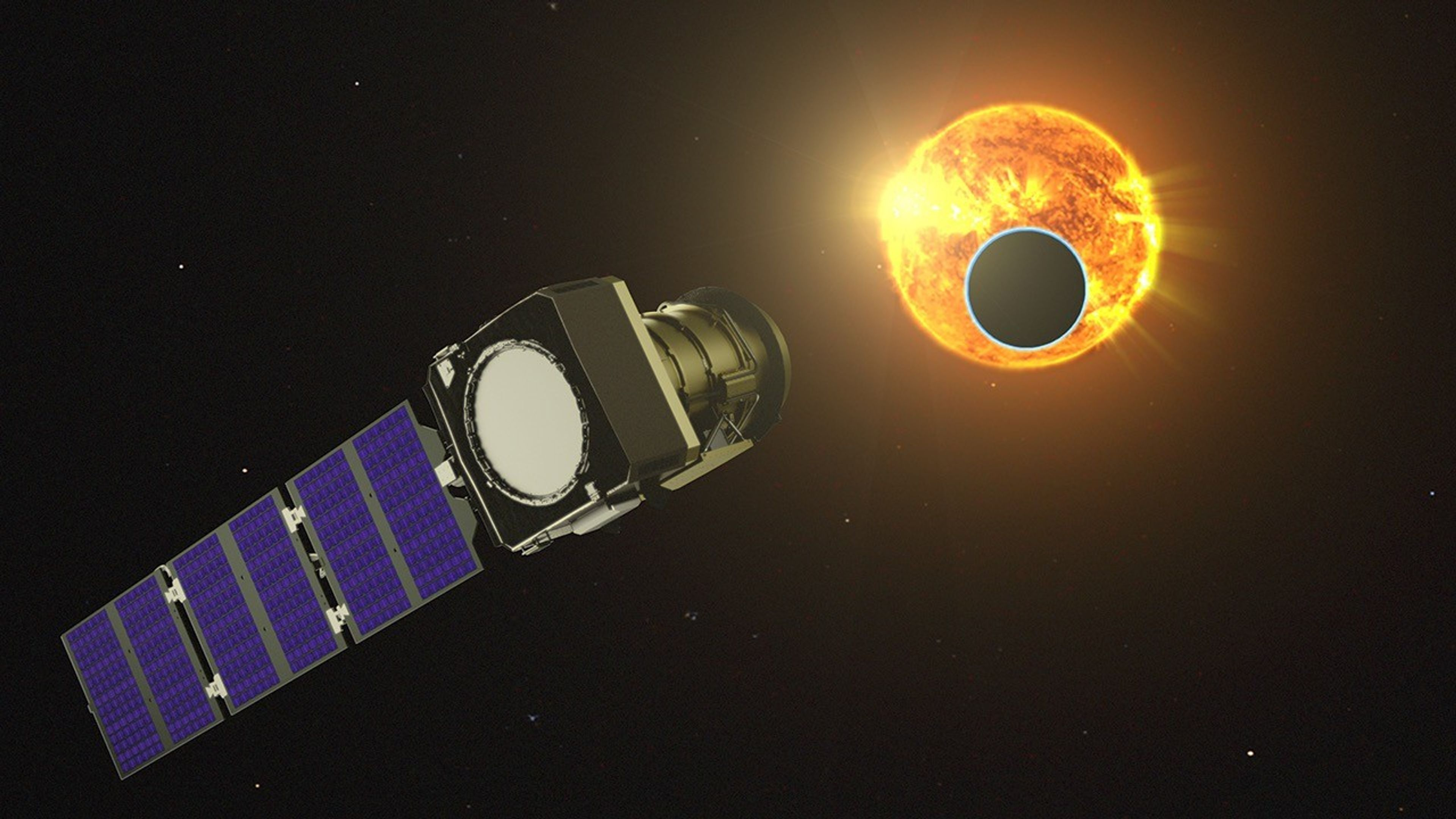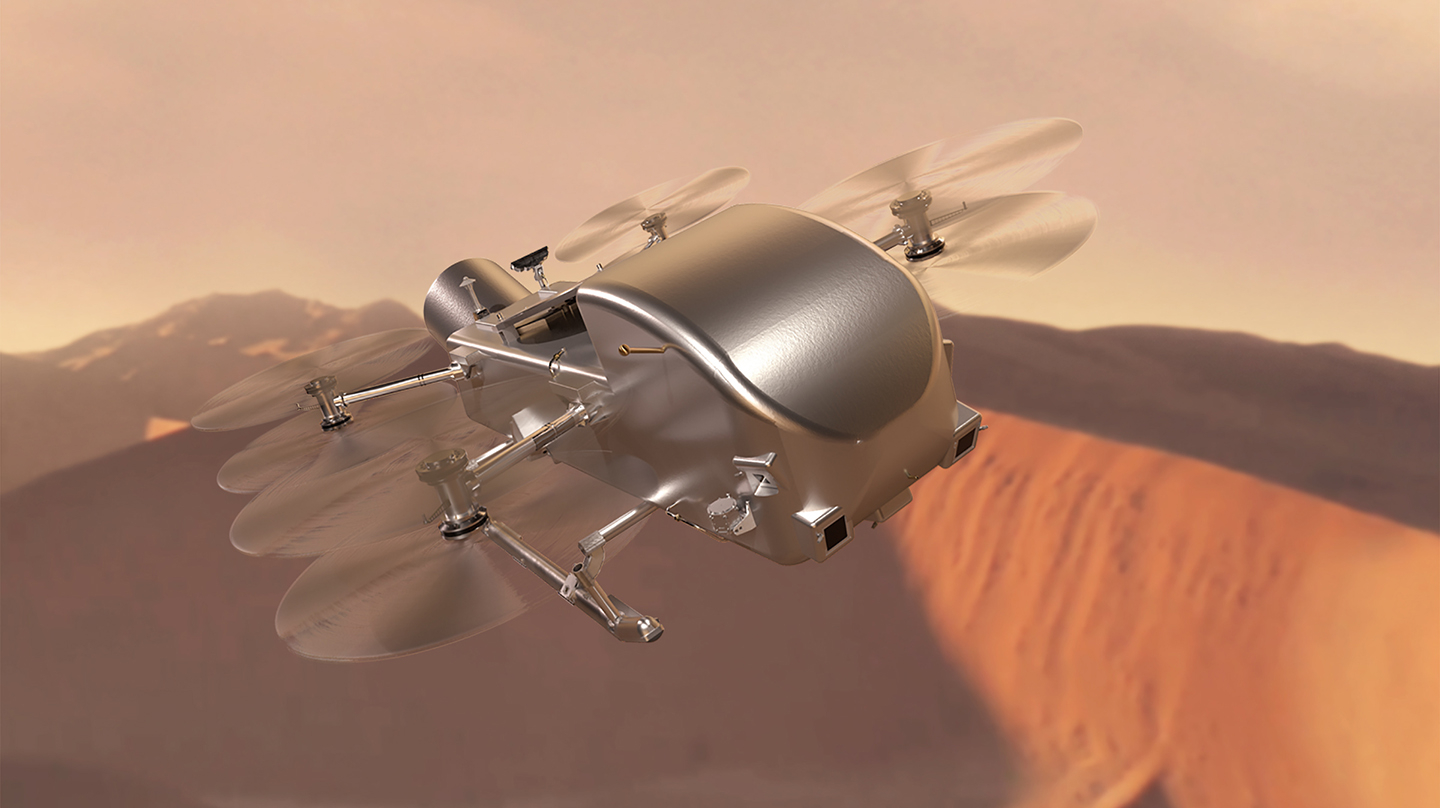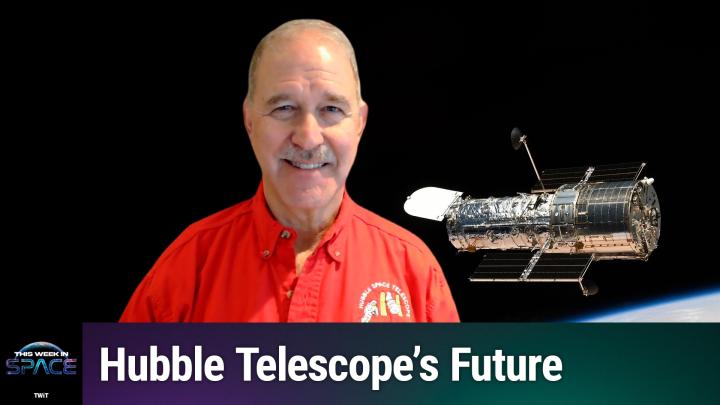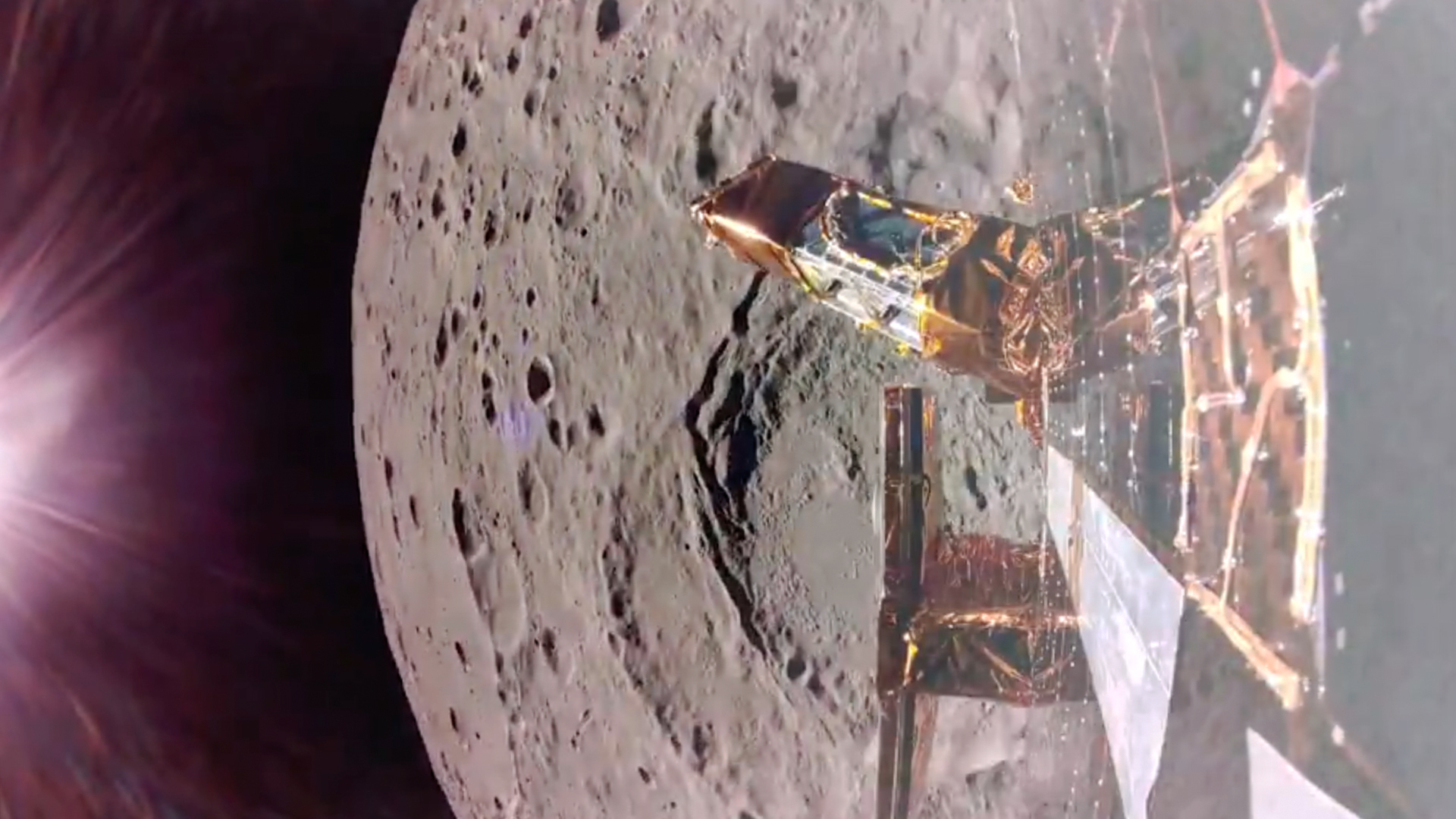
A small NASA exoplanet probe now has a ride to Earth orbit.
The agency announced on Monday afternoon (Feb. 10) that it has picked SpaceX to launch Pandora, a 716-pound (325-kilogram) satellite designed to help scientists better understand how our understanding of exoplanets' atmospheres are affected by changes in their host stars.
Pandora will lift off atop a Falcon 9 rocket no earlier than this fall, according to NASA officials.
Pandora will head to low Earth orbit. Once there, the satellite will observe at least 20 known transiting exoplanets — worlds that cross the face of their parent star from the telescope's perspective. It will observe these planets 10 separate times, staring at them for 24 hours on each occasion.
Related: Bizarre alien planet has layered atmosphere of vaporized metals
"The satellite will use an innovative 17-inch (45-centimeter)-wide all-aluminum telescope to simultaneously measure the visible and near-infrared brightness of the host star and obtain near-infrared spectra of the transiting planet," NASA officials said in Monday's statement.
"This will allow scientists to cleanly separate star and planetary signals, knowledge that will enhance observations from NASA’s James Webb Space Telescope and future missions searching for habitable worlds, like the agency’s Habitable Worlds Observatory," they added.
Get the Space.com Newsletter
Breaking space news, the latest updates on rocket launches, skywatching events and more!
The SpaceX selection was made via NASA's Venture-Class Acquisition of Dedicated and Rideshare (VADR) launch services contract.
"This contract allows the agency to make fixed-price indefinite-delivery/indefinite-quantity awards during VADR's five-year ordering period, with a maximum total value of $300 million across all contracts," NASA officials wrote.
Pandora won't be the first NASA exoplanet probe that SpaceX launches. The agency's TESS (Transiting Exoplanet Survey Satellite) lifted off atop a Falcon 9 in April 2018.
Join our Space Forums to keep talking space on the latest missions, night sky and more! And if you have a news tip, correction or comment, let us know at: community@space.com.

Michael Wall is a Senior Space Writer with Space.com and joined the team in 2010. He primarily covers exoplanets, spaceflight and military space, but has been known to dabble in the space art beat. His book about the search for alien life, "Out There," was published on Nov. 13, 2018. Before becoming a science writer, Michael worked as a herpetologist and wildlife biologist. He has a Ph.D. in evolutionary biology from the University of Sydney, Australia, a bachelor's degree from the University of Arizona, and a graduate certificate in science writing from the University of California, Santa Cruz. To find out what his latest project is, you can follow Michael on Twitter.









